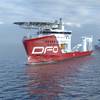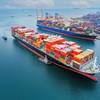Do Ports Need Global Regulation?
Ports are essential for the global supply chain - but do they need more international regulation?
High-level speakers engaged in a lively debate at a joint Hutchison Ports, International Maritime Organization (IMO) and IMO International Maritime Law Institute (IMLI) seminar (9 September), to address the question: "Do ports need international regulation?"
IMO Secretary-General Kitack Lim reminded the audience that the IMO Convention does give the Organization a mandate to regulate in ports and some current IMO regulations do indeed extend to port operations - for example those surrounding security, reception facilities and the Facilitation (FAL) Convention.
"However, there are many opportunities to further explore and enhance the cooperation between shipping, ports and the logistics industries," Lim said, adding that a port sector that can streamline procedures and remove barriers to trade, embrace new technologies, and treat safety, security and reputation as both desirable and marketable, will be a major driver towards stability and sustainable development – and support the achievement of the UN sustainable development goals (SDGS).
Speakers agreed that more dialogue with ports and more involvement from port-related stakeholders at IMO were necessary, particularly with advancements in automation and digitalisation.
Ports are becoming increasingly relevant in actions to combat climate change and reduce shipping emissions, including supply of low-emission fuels for ships, port call optimization and just-in-time operations and moves towards sustainable on-shore power supply, requiring port infrastructure and information exchange. But the extent of any international regulation needed to be carefully discussed.
Capacity building was also key to ensuring harmonization and implementation of existing and any new international standards, codes of practices and guidelines.
United Kingdom Maritime Minister Nusrat Ghani MP also highlighted the advances being made in the integrated supply chain. "What new standards will be needed is a question we need to answer," she said, adding that regulation needs to be responsive to new challenges and be fit for purpose.
Panellists reflected on the IMO World Maritime theme for 2019, Empowering Women in the maritime community, and welcomed increasing opportunities for females, especially with increasing automation of manual tasks in what is still a male-dominated sector, particularly on the dock side.
The event at IMO Headquarters in London, United Kingdom was part of London International shipping Week (LISW). IMO's Frederick Kenney moderated.
Participants were welcomed by Clemence Cheng, Executive Director, Hutchison Ports. Professor David Attard, Director, IMO International Maritime Law Institute, outlined the role of ports in maritime law and highlighted the importance of enforcement of regulations, including through implementation into national law, and the need for capacity building and training.
Panellists were: Patrick Verhoeven, International Association of Ports and Harbours (IAPH); Guy Platten, International Chamber of Shipping (ICS); Ms. Lamia Kerdjoudj-Belkaid, The Federation of European Private Port Companies and Terminals (FEPORT); Andrew Higgs Setfords Solicitors; Ms. Sakura Kuma, Yokohama and Kawasaki International Port (YKIP); and Ms. Diana Whitney, Hutchison Ports.












